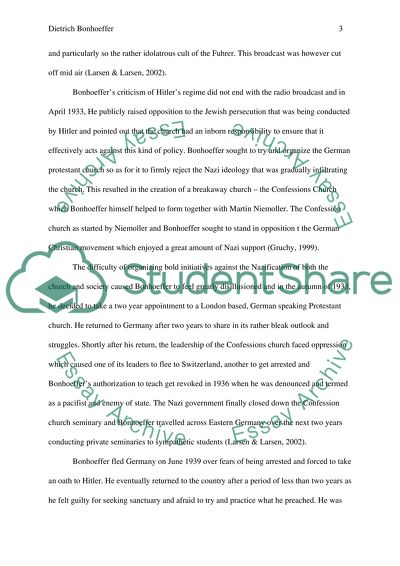Cite this document
(“Dietrich Bonhoeffer Research Paper Example | Topics and Well Written Essays - 1000 words”, n.d.)
Retrieved from https://studentshare.org/religion-and-theology/1640172-dietrich-bonhoeffer
Retrieved from https://studentshare.org/religion-and-theology/1640172-dietrich-bonhoeffer
(Dietrich Bonhoeffer Research Paper Example | Topics and Well Written Essays - 1000 Words)
https://studentshare.org/religion-and-theology/1640172-dietrich-bonhoeffer.
https://studentshare.org/religion-and-theology/1640172-dietrich-bonhoeffer.
“Dietrich Bonhoeffer Research Paper Example | Topics and Well Written Essays - 1000 Words”, n.d. https://studentshare.org/religion-and-theology/1640172-dietrich-bonhoeffer.


